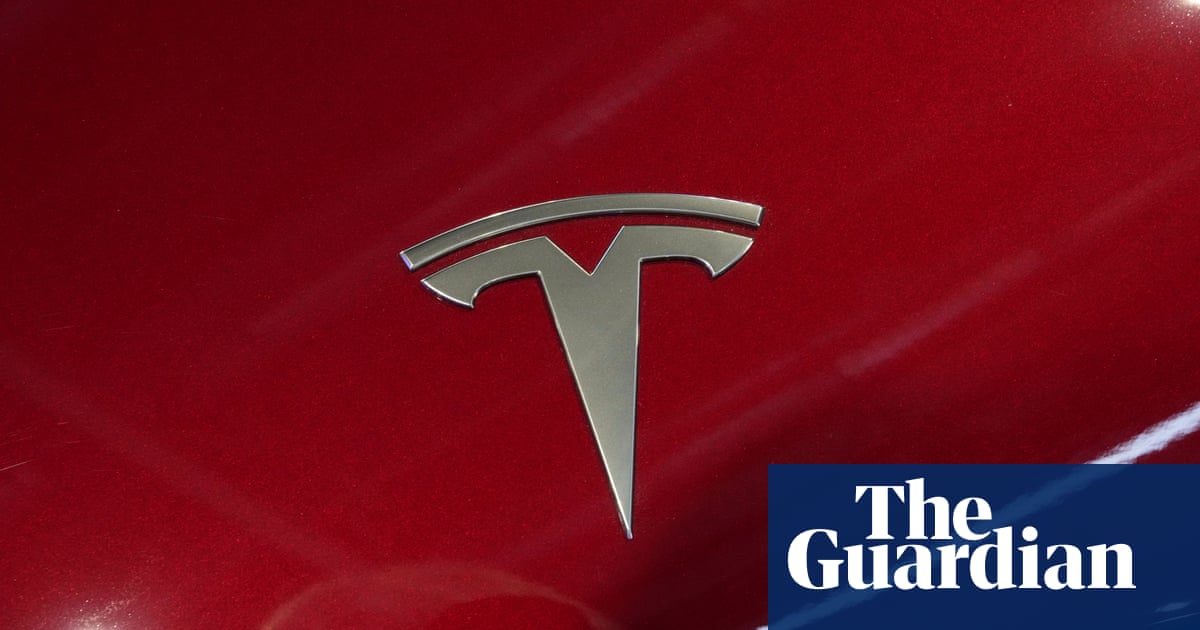Tesla shares fall as company reports first decline in annual deliveries

Tesla reported its first decline in annual deliveries on Thursday, as the automaker handed over fewer-than-expected electric vehicles in the fourth quarter and incentives failed to boost demand for its ageing lineup of models. The company failed to meet quarterly delivery targets multiple times in 2024.
Deliveries for 2024 were 1.79m, 1.1% lower than a year ago, below estimates of 1.806m units, according to 19 analysts polled by LSEG. Tesla moved 495,570 vehicles in the three months to 31 December, missing estimates of 503,269 units, according to 15 analysts polled by LSEG. Tesla delivered 471,930 Model 3 and Model Y vehicles and 23,640 units of other models, including the Model S sedan, Cybertruck and Model X premium SUV. It produced 459,445 vehicles during the October-December period.
Shares of the company fell 3.5% before the bell, in a sign of investor worries over the challenges facing CEO Elon Musk, who expected promotions including zero-interest financing to power a “slight growth” in deliveries in 2024. However, Tesla stock is up more than 60% from one year ago, reaching new heights in the wake of the US presidential election and sending Musk’s fortune well past $400bn.
Reduced European subsidies, a shift in the US toward lower-priced hybrid vehicles and tougher competition from China’s leading electric vehicle maker BYD have put pressure on Tesla. The company reported a series of disappointing quarterly earnings in 2024, when price cuts and a new truck were unsuccessful in wooing customers.
Investors remain bullish, though, as Musk boasts close connections to President-elect Donald Trump. Some Tesla owners have expressed regret over their purchases in the wake of Musk’s hard-right pivot, saying they are embarrassed to be seen driving the electric vehicles. Musk himself has threatened to step away from the company after a protracted legal battle over his compensation. A judge rejected the $56bn pay package twice, calling it excessive, despite shareholders’ vote to approve it.
In response to its challenges with sales, Musk pivoted Tesla to self-driving taxis and backed Trump with millions of dollars in campaign donations in hopes that it could bring regulatory relief for the company. Musk donated nearly a quarter of a billion dollars in support of Trump’s campaign.
With self-driving technology still years away, analysts have said Tesla will have to rely on cheaper versions of current cars and the Cybertruck to drive sales growth in the near term. The truck, known for its trapezoidal, stainless-steel exterior, has been showing signs of demand weakness, analysts have said.
Meanwhile, October registrations of Tesla vehicles in Europe fell by 24%, owing to a tight race from Volkswagen Group, whose Skoda Enyaq SUV dethroned the Model Y as the bestselling EV in the region, according to data research firm Jato Dynamics.
Tesla slashed the prices of multiple models last year to compete with BYD and others, which pinched its profit margin on vehicle sales. Wall Street, however, expects demand to pick up in 2025 as the US Federal Reserve cuts interest rates.
Related
Why investing in women is a vital next step for…
Get Nadine White's Race Report newsletter for a fresh perspective on the week's newsGet our free newsletter from The Independent's Race CorrespondentGet our fre
Business secretary signals major shift on electric car policy to…
In a determined effort to retain Nissan’s manufacturing presence in Britain, Business Secretary Jonathan Reynolds has vowed to implement “substantial c
Joint Statement: Business Secretary and Fujitsu Services Ltd
Business and Trade Secretary Jonathan Reynolds today (Friday 7 March) met chiefs for Fujitsu in Tokyo to begin talks over the cost of redress for victims of th
UK foreign secretary backs multilateral defence funding for Europe
UK foreign secretary David Lammy has said that a new multilateral fund will be needed to secure Europe’s defence as he confirmed that Britain is “open to”













